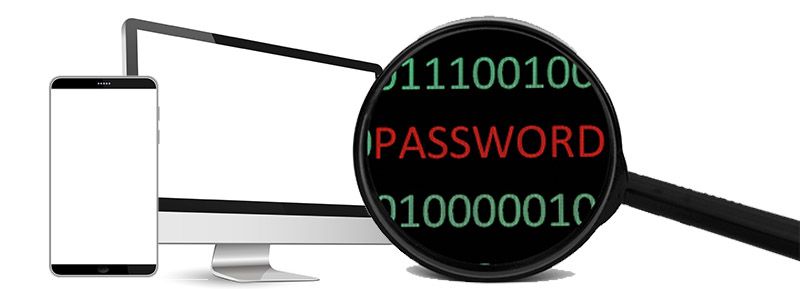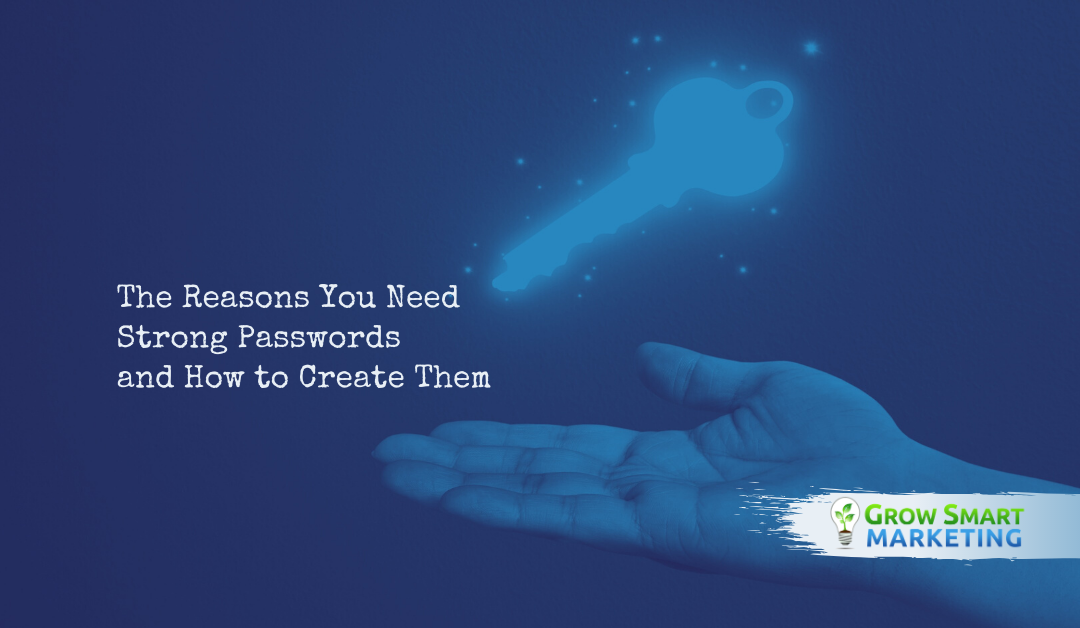Hackers cause a lot of problems online, and making it harder for you to remember your password is one result of them. The main reason you need strong passwords is due to hackers. They use software to figure out your password, and then they use the information they get to break into your account to steal your information and even your identity. It’s just not worth it. If you want to prevent that from happening, here are some tips to help you create strong passwords that you can remember.
- Don’t Ignore Any Account – One problem with some accounts is that you may sign in once, create a password and never go back. This is not good for security. If you do sign up for something and create a password, it’s important to note it someplace safe so that you can go back and cancel the account or change your password every three or four months.
- Create Unique Passwords – Each password you create should be different. Don’t use the same one for every social media account or every bank account. This is asking for problems. Once they figure out one, they’ll end up with access to all.
- Set Up 2-Step Verification – When any account offers it, set up 2-step verification. This can sometimes be a pain, but it’s a good way to prevent hackers from getting into your information even if they somehow get the password. This is because this system notes location and devices and can prevent and alert you to hackers.
- Use Numbers and Letters – Not only should you use letters and numbers for your passwords, but also symbols when permitted. This will make it harder for any system to guess, as it gives that many more combinations of choices.
- Don’t Use Patterns – Any patterns are bad when it comes to passwords, because that’s the first thing a hacker or a bot will try when they are trying to guess your password. They’ll use common patters to hack into your systems.
- Get Rid of Biographical Data – Birthdays, anniversaries, and other important dates and locations are always a bad choice when it comes to passwords. Sure, you can remember them easier, but hackers and bots can guess them easier too.
- The Longer the Better – Longer passwords are always better due to the larger number of combinations a bot or hacker has to use to figure out your password.
- Consider a Password Manager – There are password managers that can help you keep track, and some people recommend them. Yes, there have been breaches of these systems too, but they know they’ll be under great threat from hackers so they work all the time on increasing security.
- Try a Password Convention – The best way to remember your passwords is to use a particular password convention that you make up for all your passwords. For example, let’s say you need to create a password for your Walmart account and one for your Google email. Start with certain letters and numbers that have no relationship, then add letters based on where you’re signing in.
- Write Them Down – Having a hard copy of your passwords will not only be useful for you, but also for your relatives if something should happen to you. Keep them locked in your file cabinet or safe, and change them every three or four months.
The sad fact is that you can’t prevent all data breeches. Your information is only as safe as the companies you sign up for. Even if you have the best password, if they don’t have good security hackers may still get your information. Set up security on your credit report, banks, and other important information so that you’ll always be alerted to any threats.
Tips for Creating Strong Passwords

Passwords are a problem, not just for website users but also for website owners. You have to trust that your users will create strong passwords and not share them with others, and you have to ensure that the security you create is safe too. The best thing to do is teach everyone to create strong passwords from the start.
1. Write Them Down – First, whenever you create a password you should write it down and store it someplace secure. Keeping a password notebook that you put in your locked file cabinet is a good way to go. You’re going to keep it like a diary so that any person who accesses it can flip to the back page and find your most recent changes. Don’t tell the world that you have this notebook; put it in your will for your family or business partner.
2. Create a Password Standard – You can create a password standard for yourself that makes it hard for people to guess but easier for you to remember. It should be random but make sense to you only. Use this standard for every password you create.
3. Use Two-Step Verification – On websites that have it, always choose two-step verification because this is your biggest deterrent to would-be hackers. It’s kind of like how robbers don’t like to go into a locked car or house. Keep your passwords locked up and your accounts hard to get into, and they’ll leave you alone.
4. Close Out Unused Accounts – If you have online bank accounts, social media accounts, shopping accounts and any accounts that you never use that have passwords, consider canceling them. If you’re not using them, a hacker might decide to and you may not even notice.
5. Use Letters, Numbers and Symbols – The more random letters, numbers and symbols you can use, the better for security. Some systems don’t let you, but use everything you’re allowed to make the password the most random possible.
6. Make Longer Passwords – If a system lets you use 20-figure passwords, do it. The longer your passwords are, the harder it will be for anyone to guess or break into the account. It will take them much longer to guess 20 figures than it will seven.
7. Use Password Generators – These are really great for choosing truly horrible-looking and hard to figure out passwords. They’ll be truly random so that you can then use that as a password for the system. If you do this, be sure to copy and paste it someplace to save.
8. Ensure It’s Really Random – You want all passwords to be truly random without any identifying information within. No birthdays, anniversaries, locations or anything like that, even though it makes them harder to remember. Plus, do not use the same ones for each account you open.
9. Change Them Often – You should try to change all your passwords about every three to four months. You don’t need to do them all on the same day, but try to make it a habit to change them as often as you can to avoid problems.
Top Password Managers

- Dashlane – This is a password manager and secure digital wallet that you can use to manage your password and your money. They have a free version and a paid version. It is recommended that you use the paid version to take advantage of all the features. If you need a way to keep track of all your account info in one spot that is secure, consider this one. It also comes with an awesome password generator.
- Zoho Vault – Zoho offers a lot of amazing apps and software to use in your business, and Zoho Vault is no different. It doesn’t have form filling capacity, but it works great as a password manager.
- LastPass Premium – This is one of the favorites of online business owners due to the inexpensive cost and the advanced features. They have had some security problems in the past, but people love them so much they stuck by them. L
- RoboForm – Billing themselves as the best and easiest to use password manager in the industry, RoboForm has been around a while and is trusted by many. They help you remember all your passwords and it works on any type of device. They use familiar bookmark-style logins that are popular with many.
- LogMeOnce – If you need a password manager and a way to feel safe logging in while on an unsecure server, then LogMeOnce might be your answer. This works on iPhone, iPad and Android too. It offers access to all platforms and is a great solution. Link –
- Password Genie – Brought to you by SecurityCoverage.com, this secure system helps you remember your passwords and logs you in to any system that you need. It has two-step verification which makes it secure, as well as a password generator and strength rater that help tremendously.
- Password Boss – This system offers a free version for charities and is a fully-featured password manager that offers a lot of features you’ll like, such as one password to access everything. They use bank grade security and are accessible from anywhere using multiple platforms.
- True Key – This system is interesting because it can recognize you without you using any password at all to sign into the system and access your accounts. Once you set it up, you will be able to have access without concern. Using multi-factor authentication will ensure that you are who they think you are, keeping your information safe.
There is no doubt that password managers will make your life easier, but which one you pick will depend on your unique needs and understanding of the technology.

